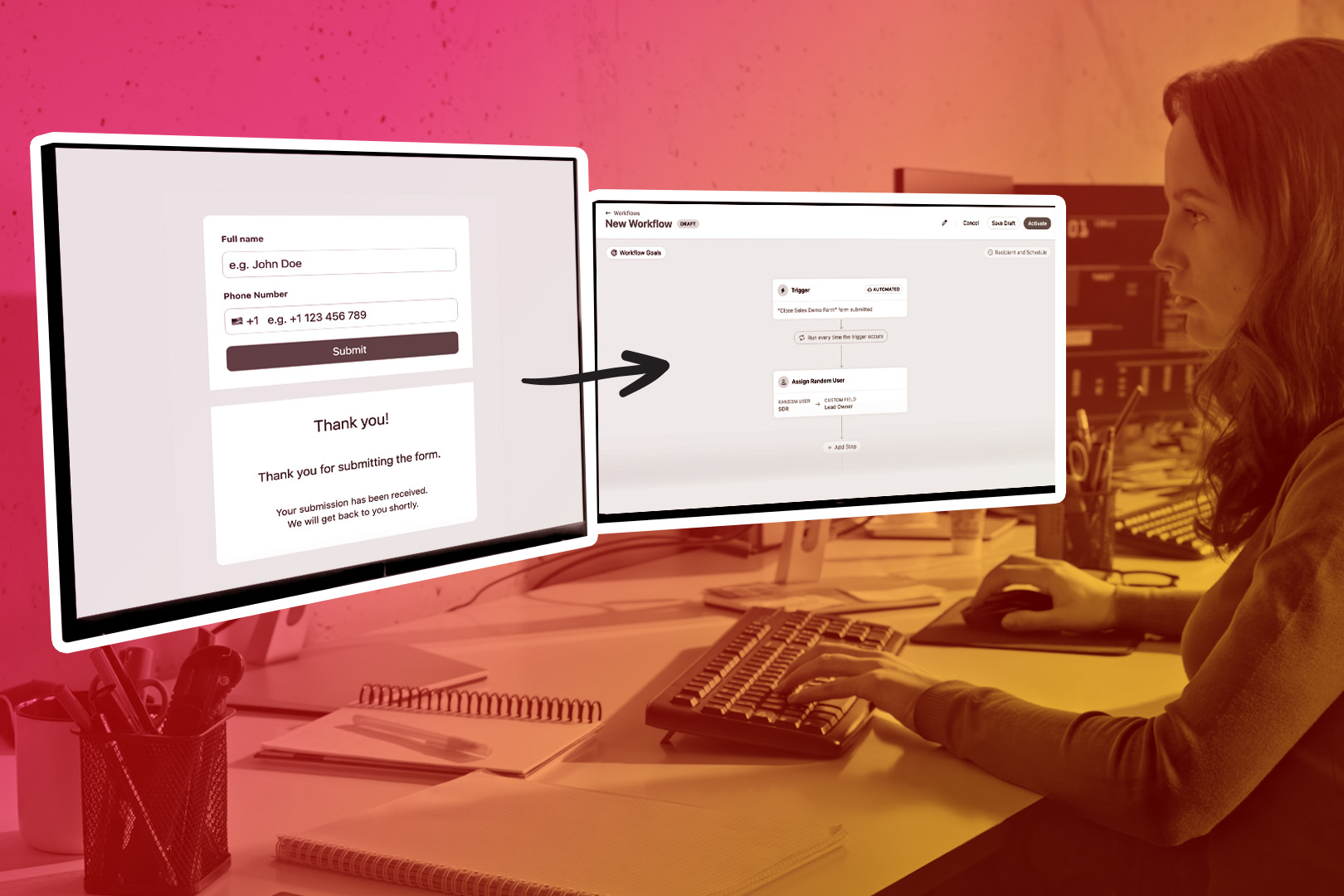Ten years ago, I hired a salesperson with incredible drive. He had recently lost everything—his job, house, and money. But he was hungry to get back in the game and work his ass off. He was under-qualified, but what he lacked in experience, he made up for in energy. So, I took a chance on him.
I spent excessive time trying to train him because I desperately wanted to be right about him. I worked nights and weekends with him. I coached him to nail down his sales pitch and aggressively pursue leads. But a year later, we weren’t seeing any improvement. He didn’t have hustle—that killer instinct you need in sales.
I wasted my time and my new employee's time trying to get him good enough. By the time I let him go, he was out of a job and had just wasted a year trying to fit a role that wasn’t right for him.
He was one of many hiring mistakes I’ve made. While I still believe in hiring based on attitude and not just experience, I’ve realized that risky hires need to be carefully and systematically managed to ensure they become successful.
Jack Welch’s Hiring Quadrant
The best sales hiring exercise I ever learned came from the infamous Jack Welch, former sales manager and CEO of General Electric. His classification system for employee archetypes has helped me better understand how to work with different kinds of people.

According to Jack Welch, every hire scales somewhere on the chart above regarding capability (x-axis) and willingness (y-axis). Here’s how I’ve broken up these different archetypes:
- Capable and willing: I call these employees the rockstars. They’re both great at their jobs and have excellent culture fits. Rockstars work hard to cooperate with other team members, and their sales skills are spectacular.
- Capable and unwilling: These are the assholes. These employees have an outstanding resume and close many deals but are nasty to work with. Assholes will sabotage your company culture and will end up destroying your team—if not your whole company—from within.
- Incapable and unwilling: The misfits are neither qualified nor have extra zeal to compensate. Like the rockstars, the misfits are easy for hiring managers to spot.
- Incapable and willing: The underdogs are my kryptonite. These employees have the heart but don't yet have the skills. They're hard workers and have the highest growth potential in the company.
While most managers run straight to the rockstars, the best hires usually end up being the underdogs. The underdogs are enthusiastic learners, eager to absorb the ins and outs of the business. As rookies, they often have the greatest growth potential because while anyone can learn sales skills, no one else can learn the underdog’s hunger.
But underdogs present the toughest hiring decisions, because you have to bet on whether they have what it takes to catch up to the rest of the team. As a result, you need to walk a fine line between giving them a chance to meet their potential and knowing when it’s time to cut your losses and part ways.
How to Work with Underdogs
Underdogs are such tempting hires because they are often greatly undervalued candidates. They’re not applying for the job to work for a few years and then move on. They are looking for a growth opportunity to kick-start their career, so whoever offers them that opportunity will earn their allegiance and undivided attention.
But not every underdog is a success story. Sales require grit and hustle that they might not have. The trick in dealing with underdogs is knowing when to call it quits. The more time and money you invest, the more emotionally invested you become, and the more difficult it will be for you to make a rational and objective decision when to call it quits.

By setting up a bullet-proof system for evaluating the performance of a new hire, you’ll accomplish three things:
- Weed out underperformers by setting your expectations in stone.
- Enable those with what it takes to succeed by holding them to high standards.
- Set the same expectations for all your sales reps.
Gauging your expectations will help your underdog achieve top results and succeed within your company. Here are four questions to ask yourself when preparing to hire them.
1. Does the Underdog Walk the Walk?
Due to the psychological concept of illusory superiority, most people overestimate their capabilities. For example, in one survey of Stanford MBA students, 87 percent claimed that their academic performance was above average.
Likewise, people tend to exaggerate their work ethic. They think, “Well, I could be hardworking if I wanted to be.” So, some applicants will fool managers into thinking they’re underdogs when they’re just cleverly disguised misfits.
Since their performance won't be up to par yet, pay particular attention to how new hires spend their time to see if they’re as hungry as they claim:
- Check to see if they are eagerly taking notes and learning the processes
- Get feedback from their peers to see how well they’re absorbing new information
- Ask for concerns from the hires themselves to get a sense of how motivated they are to improve
You hired the underdog because you thought they’d dig deep and give you their all. If their work ethic is anything less than excellent during onboarding, consider how they’ll act in six months. Cut your losses quickly if you were duped in the interview process by an undercover misfit.
2. How Long Will You Wait for Them to Catch Up?
In just the US and UK, companies spend about 37 billion dollars annually to keep unproductive employees who do not understand their jobs. To stop yourself from falling into this trap, set a time limit before you hire the underdog in the first place.
You’ll need more time than you think. Sales managers underestimate how long someone should take to get the hang of the processes. Training a new sales rep typically takes seven months, but over 27 percent of employers judge the success of an entry-level employee in just two weeks.
So I recommend you decide how much time you think catch-up should take for someone with no sales background and double it. Setting time expectations before hiring the candidate lets you know when to cut your losses should his passion and work ethic not compensate for his lack of experience.
3. How Will You Onboard This Hire?
Training a new sales rep is time-consuming, so it might be your first instinct to let the underdog have at it himself. However, studies have shown that 40 percent of employees who receive poor training leave their jobs within a year. You hired the underdog because you thought he had the right zeal for success. The last thing you want to do is set him up for failure.
Underdogs will require more attention than more qualified hires to succeed. That means that the responsibility of training falls entirely on you as the manager. Since underdogs have the greatest growth potential in the company, you want to ensure you equip them to meet their full potential and be the stars of your workforce.
You can do this by having a metrics-based training program set in stone:
- Measure performance through the time needed to close a sale or the number of emails that result in a qualified lead.
- Use these metrics to pinpoint their strengths and weaknesses and work with them to improve them.
- Delegate some training responsibilities to more experienced staff members to improve team dynamics.
To see whether your training program is working, have a weekly 1:1 with the new hire. This way, you can see first-hand whether any progress has been made.
4. How Will You Measure Success?
Being data-driven is a surefire way to stop yourself from making excuses for the sympathetic underdogs. So make sure that your final evaluation of their performance is quantitative and not qualitative.
Too many managers set expectations either unreasonably high (equivalent to their top performers) or unreasonably low (because they’re newbies). The ultimate benchmark should equal the average performance among your sales reps.
This benchmark is the minimum performance expectation—anything below will indicate that the employee wasn’t worth the investment. You are not hiring an underdog because you want an employee with a free pass— you’re hiring an underdog because his hunger and energy gave you the impression he was capable of not just catching up but excelling.
So, if doubling the anticipated time isn’t enough for the underdogs to meet your standards, then you'll know that it’s time to let them go.
Turn Your Underdogs into Rockstars
Keep in mind that every rockstar employee once started as an underdog. While an underdog requires more training and work than other applicants, should they persevere, their allegiance and passion will make them some of the best employees you’ve ever worked with.
What sets underdogs apart from other hires is their contagious passion. They are so energized by their ambitions that they will stop at nothing until they reach their goals. And while most sales skills can be taught, this superb attitude cannot.
If you catch these gems early, you’ll find that the underdogs can have a spectacular, long-lasting impact on overall sales performance and team dynamics, making them well worth the risk and the investment.










.jpg)

